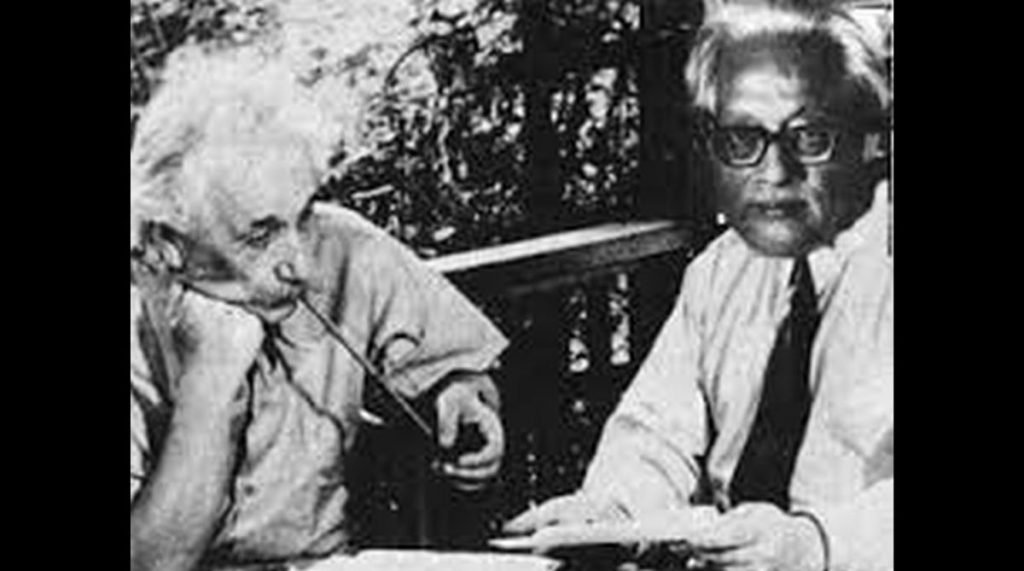On this day in 1924, Indian mathematician and physicist Satyendra Nath Bose sent his quantum formulation to Albert Einstein, who termed it an important discovery in quantum mechanics. Google pays tribute to Bose by making an artistic doodle.

Google paid tribute to Indian mathematician and physicist Satyendra Nath Bose with an artistic doodle. The doodle shows Bose doing an experiment. On this day in 1924, Bose sent his quantum formulation to Albert Einstein, who called it an important discovery in quantum mechanics.
Satyendra Nath Bose was born on January 1, 1894 in Kolkata. He is best known for his work on quantum mechanics in the early 1920s. He developed the foundations of Bose statistics and the theory of Bose condensation.
Bose’s father was an accountant. He used to write arithmetic questions for Bose. This aroused his interest in mathematics. At the age of 15, Bose began pursuing a Bachelor of Science degree at the Presidency College, Calcutta.
He obtained a master’s degree in applied mathematics from the University of Calcutta. Bose cemented his coveted position in the academia, graduating at the top of his class for both degrees. By the end of 1917, Bose started giving lectures on physics.
One day while teaching Planck’s radiation formula to postgraduate students, he questioned the way particles were calculated. Then the chicken began to experiment with his theories. Bose documented his findings in a report entitled Planck’s Law and the Hypothesis of Light Quanta, and sent it to a major science journal called The Philosophical Magazine.
However, his research was rejected. Then he mailed his paper to Albert Einstein. Einstein actually recognized the importance of Bose’s discovery and applied the Indian physician’s formula to a wide variety of phenomena.
Bose’s theoretical paper became one of the most important findings in quantum theory. The Government of India honored him with the Padma Vibhushan, the second highest civilian award, for his tremendous contribution to physics. He was also specially appointed as the National Professorship, which is the highest honor in India for scholars.
Bose served as the president of several scientific institutions, including the Indian Physical Society, the National Institute of Science, the Indian Science Congress and the Indian Statistical Institute. He was also an advisor to the Council of Scientific and Industrial Research.
Later, Bose became a Fellow of the Royal Society. In particular, any particle that conforms to his statistics today is known as a boson. His work has led to many scientific breakthroughs, including particle accelerators and the discovery of the God particle.

